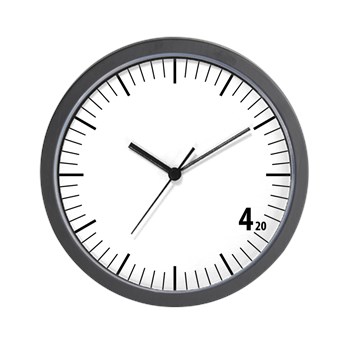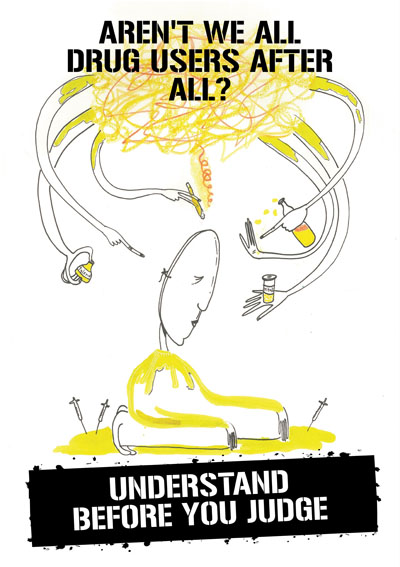UN backs prohibitionist drug policies despite call for more ‘humane solution’
The first United Nations general assembly special session on drugs in almost two decades has approved an agreement that leaves in place the prohibitionist policies banning narcotics use, despite growing international discontent with the “war on drugs†– and the concerns of the nations that called the meeting. […]
The agreement adopted on the first day of the three-day summit included no criticism of the death penalty for drug crimes, and instead called for greater cooperation between nations, while maintaining the prohibitionist framework which criminalizes all drug use that is not for medical or scientific purposes.
The agreement – called an “outcome document†– was not a surprise for anyone in the room and was publicised in advance of the meeting and adopted almost immediately. […]
However, some advocacy groups have pointed to progress in the outcome document, especially in its call for promotion of opioid treatment programs and overdose medications, Naloxone being the best known.
And although the document avoided the words “harm reductionâ€, a common umbrella term in public health circles, the document called on nations to consider programs such as needle exchanges, which provide clean syringes to injection drug users. Such programs have been shown to reduce new cases of blood borne diseases, such as HIV and Hepatitis C.
Of course, you might think that the U.N. had a more enlightened approach if you read the LA Times.
Tom Angell caught them: LA Times Gets Fooled by Fake Drug War Press Release
But at least one newspaper got tricked into reporting fake news from the event.
According the Los Angeles Times:
As the summit opened Tuesday, the United Nations Office on Drugs and Crime announced new international recommendations, including the decriminalization of marijuana, universal access to controlled medicines, criminal justice system reforms including elimination of mandatory minimum jail sentences and abolition of the death penalty and acknowledging marijuana’s medical use.
“The science increasingly supports decriminalization and harm reduction over proscriptive, fear-based approaches,†UNODC Executive Director Yuri Fedotov said in a statement Tuesday. “It’s time to reverse the cycles of violence that occur wherever ‘drug wars’ are undertaken, and to abandon policies that exacerbate suffering.â€
The UNODC also said it would reform its decision-making process to include a more diverse range of voices.
“We can begin to dismantle ‘just say no’ policies that result in millions needlessly killed and incarcerated — and that defy logic and science — and instead bring to the forefront humane solutions that are known to work,†said Kevin Campo, a spokesman for the drugs agency.
To advocates of ending the war on drugs, that sounds like great news. There’s only one problem: It’s all based on a fake press release claiming that UNODC was using cannabis holiday 4/20 to announce a big shift
That fake press release is titled “UNODC Unveils Historic “4/20″ Policy Redirect at UNGASS 2016.” Huh, yeah. Funny.
Of course, those of us who have followed Yuri Fedetov at all, would immediately recognize that quote couldn’t be from him.
Successful prank. Nice catch, Tom! (Note: The LA Times story is still up at this time.)
No, the U.N. leadership is not that open to reform (as the Guardian article so clearly notes). In fact, the Drug Policy Alliance reported that the U.N. was confiscating copies of the letter calling for the end of the drug war that were being handed out in front of the U.N.
UN Security was apparently ordered to confiscate the letter, and attendees were ordered to hand over their copies upon entering the building. According to a number of participants in the UN Special Session, they were told that the document was not allowed in the building. “As we were walking into the metal detectors right at the entrance, the security were confiscating it from people,†said Natalie Lyla Ginsberg, Policy and Advocacy Manager for Multidisciplinary Association for Psychedelic Studies (MAPS). Ms. Ginsberg continued, “I went back to ask the security guard why, and he said he got orders from the UN to specifically take the newspapers. He said he was just following orders.â€
Of course, the truth is that the U.N. is not going to be a leader on reform (just as we knew the U.S. government was never going to be a leader on reform. The UNGASS, though disappointingly predictable, did provide the impetus for publicity from a growing international group of reform-minded organizations and leaders. And that’s good.
Just as marijuana reform has been happening in the U.S. simply because the people began to realize that the U.S. government was outdated and irrelevant in its views, international drug policy reform will happen because individual countries start to think the same about the U.N.
Update: Steve Rolles at Transform said what I was thinking, only better: The drug warriors who derailed the UN drug policy summit have made a terrible miscalculation. Just go ahead and read it.



